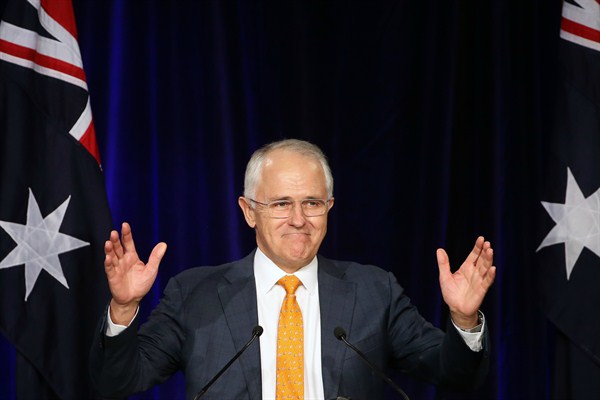Every American policy analyst who has passed through the doors of the Lowy Institute for International Policy in Sydney in recent months asks a version of the same rhetorical question about Australian politics: What are you Aussies complaining about? We get fewer British visitors at Lowy than Americans, but I imagine they are thinking the same thing. They have a point.
From their perspective, Australia looks prosperous—with unemployment below 6 percent, continuous economic growth for the past 24 years, and a generous social safety net—and thus well governed. Nor is Australia suffering the kind of political schisms seen in the United Kingdom in the wake of Brexit, or in the United States with the rise of Donald Trump.
Or is it? Last weekend’s national elections have yet to be decided. Typically, the results in Australia are known within hours of polls closing, but this election is still too close to call. The center-right government of Prime Minister Malcolm Turnbull, leader of the Liberal Party, could return to power with a wafer-thin majority in the lower house of parliament, or it could form a minority government with the help of small parties and independents. The odds are against the opposition Labor Party having the numbers to form a government, though it made significant gains in the election.

